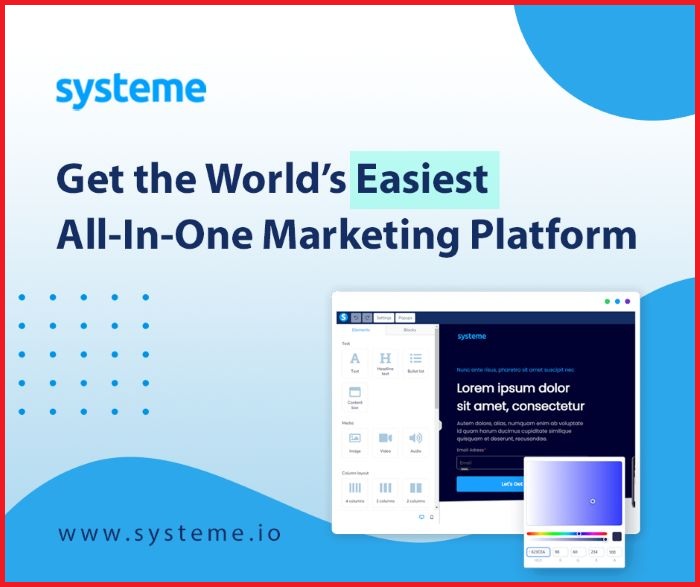Engaging a search engine optimization consultant can transform your business’s online presence. In today’s digital world, navigating SEO can be complex, and having expert guidance can lead to better visibility and increased traffic. An SEO consultant can help your business appear in more search results, ultimately driving growth and revenue.

An SEO consultant provides tailored strategies to fit your business needs. They focus on key elements like keyword optimization, content quality, and technical SEO to ensure that your site attracts and retains visitors. Their expertise can drive decisions on whether to focus on local SEO to reach nearby customers or expand your reach on a global scale.
Selecting the right consultant is crucial to your success online. Look for someone with a proven track record and the ability to integrate SEO efforts with other digital marketing strategies. Metrics and analytics are important, as they help assess the success of your campaigns and adjust them for better performance. Understanding how to choose and work with an effective consultant can significantly improve your search engine rankings and business growth.
Key Takeaways
- Effective SEO enhances online visibility and business growth.
- A good consultant offers custom strategies and measurable results.
- Choosing the right SEO partner is key to successful digital marketing.
Understanding SEO Consulting
When exploring SEO consulting, it’s essential to grasp the role of an SEO consultant and how it differs from SEO services. Both are crucial for enhancing digital marketing, but they fulfill different needs within your SEO strategy.
The Role of an SEO Consultant
An SEO consultant is an expert who guides you in improving your search engine rankings. They assess your website and develop strategies tailored to your unique needs. Their work includes keyword research, analyzing competitors, and optimizing on-page elements.
These consultants keep up with algorithm changes from search engines like Google. By doing so, they ensure your website remains competitive. They use various tools to track your site’s performance and adjust strategies as needed. This means ongoing monitoring and tweaking.
They are valuable for businesses seeking personalized SEO strategies. You don’t just get one-time changes; instead, you receive continuous support and expertise. An SEO consultant helps you understand the intricacies of search engines, providing a roadmap for your digital marketing efforts.
Difference Between SEO Consulting and SEO Services
SEO consulting focuses on strategy and planning, while SEO services handle the implementation. This distinction is vital as it highlights their unique roles in digital marketing. Consulting is about identifying opportunities and creating a blueprint for success.
SEO services, however, execute the tactics laid out by the consultant. This can include technical SEO work like site audits, content creation, and link-building efforts. Services often involve tasks that need regular management.
Both are essential, but an SEO consultant provides the overarching strategy. They ensure that all actions align with your long-term goals. This combination of strategy and service maximizes your website’s potential to rank well in search results. For a deeper dive into SEO consulting, check out SEO Consultants Guide – Backlinko.
Importance of SEO for Business Growth
To grow your business effectively, it’s crucial to enhance your online presence. SEO plays a key role by increasing visibility, driving organic traffic, and improving conversion rates. Understanding these elements will help you see how SEO can contribute to your business’s success.
Enhancing Online Visibility
Online visibility is essential for businesses today. With so much competition, appearing on the first page of search results is vital. SEO helps by optimizing your content so search engines can list it more prominently.
By using targeted keywords and quality content, you can increase your chances of reaching the top positions. This increased visibility means more customers can find you, growing your brand’s awareness.
A higher ranking builds trust with potential customers. When users see your business consistently showing up in their searches, it boosts your credibility. This perceived reliability can make individuals more likely to click on your site or consider your services.
Driving Organic Traffic
Organic traffic is an important part of website visits that come from unpaid search results. SEO increases organic traffic by making your site more attractive to search engines, which helps your site appear in relevant searches.
Using good SEO practices like keyword research and quality content creation can lead to increased traffic. As more people find your site through search engines, your business will see a rise in website traffic.
Significant organic traffic ensures a consistent stream of potential customers. It allows you to reach a wider audience without the need for paid advertising, providing long-term value and growth opportunities.
Improving Conversion Rates
Conversion rates are critical indicators of how effectively your website turns visitors into customers. SEO can improve these rates by ensuring that the right customers get to your site.
You can attract qualified leads by aligning your content with user intent. When visitors find what they need quickly, they’re likelier to stay and make a purchase, leading to better conversions.
Optimizing landing pages, calls to action, and loading speed can enhance user experience. Each of these factors contributes to a better overall journey for the user, increasing the likelihood of conversion and revenue growth for your business.
Elements of SEO
To improve your website’s visibility and search rankings, focus on key areas like keyword usage, technical elements, high-quality content, and external factors such as link building. Each plays a crucial role in shaping your site’s performance on search engines.
Keyword Research and Optimization
Keywords are essential in driving traffic. Start with thorough keyword research to find terms your audience uses. Tools like Google Keyword Planner can help.
Focus on those that have good search volume and low competition.
Use keywords naturally in titles, headings, and throughout your text. Avoid keyword stuffing, which can hurt rankings. Instead, create content that flows smoothly but highlights important terms.
Include related keywords to capture a wider audience. Maintaining keyword relevance is key to attracting the right visitors.
Technical SEO and Website Design
Technical SEO involves optimizing the backend of your site. Ensure your website is mobile-friendly and loads quickly. Tools like Google PageSpeed Insights help identify areas for speed improvement.
Proper web design enhances user experience. Use clean layouts, clear navigation, and responsive designs for different devices. Structured data helps search engines understand your content better, leading to higher rankings.
Finally, check for broken links and improve your site’s security with HTTPS to build trust with visitors and search engines.
Content Creation and Optimization
Creating engaging content is vital. Start by understanding your audience’s needs and interests. Develop content that answers questions or solves problems.
Optimize your content with keywords, but keep it genuine and valuable. Use images and videos to break up text and engage users.
Regular updates to your content keep it fresh and relevant. Measuring user engagement helps refine your strategy and improve your site’s performance.
Off-Page SEO: Link Building and Social Media
Off-page SEO is influenced by activities outside your website. Link building is crucial; aim to get backlinks from reputable sites to boost your site’s authority.
Guest blogging and creating shareable content can help generate quality links. Engaging with your audience on social media platforms can enhance brand visibility and drive traffic to your website.
Use social media marketing to promote your content and interact with users. Building strong relationships online can encourage shares and mentions, benefiting your SEO efforts.
SEO Audits and Strategy Development
In search engine optimization, evaluating your website’s current condition and creating a personalized plan are key. These elements can enhance your online presence.
Comprehensive SEO Audits
An SEO audit involves a thorough checkup of your website’s performance. It looks at various areas such as technical setup, content quality, and link building efficiency.
Technical aspects like page speed, mobile responsiveness, and site architecture are assessed to ensure your site runs smoothly. Content analysis reviews your use of keywords and the relevance of your material. Additionally, link profiles are examined to verify the quality and quantity of inbound links. These audits pinpoint areas for improvement, ensuring your site meets search engines’ best practices.
By addressing the findings, you can enhance your search engine visibility, attracting more visitors and potentially increasing conversions.
Developing Tailored SEO Strategies
Once the audit is complete, developing a tailored SEO strategy is essential. This involves setting clear goals and creating a plan that aligns with your business objectives.
Start by conducting a competitor analysis to see what works well in your industry. This helps identify opportunities and gaps. Next, if you plan a website redesign, incorporate SEO-friendly changes. Include elements like improved site structure and optimized content.
Developing an SEO strategy might involve detailed keyword research and crafting high-quality content relevant to your audience. Regularly adjusting your SEO campaign based on analytics and performance metrics is important to remain competitive and effective.
Metrics and Measuring Success
Understanding the metrics of search engine optimization (SEO) is crucial for evaluating its effectiveness. By focusing on Key Performance Indicators (KPIs) and measurable results, you can assess changes in organic traffic, conversions, and ROI.
Key Performance Indicators (KPIs)
KPIs are vital for measuring SEO success. They allow you to track the performance of your SEO strategy with precision. Some essential KPIs include organic traffic, conversion rates, and search rankings.
Increased organic traffic shows that more visitors are discovering your site via search engines. Conversion rates measure how well this traffic turns into tangible actions like sales or sign-ups. Regular SEO audits can ensure that your KPIs align with your goals, helping you keep the strategy on track.
Measurable Results and ROI
Measuring results and tracking ROI give you a clear view of how effective your SEO efforts are. It involves assessing how increased organic traffic translates into revenue or other goals.
Using tools like Google Analytics can provide insights into traffic growth and conversion data. You can use this data to evaluate the return on your investment in SEO activities.
Client reviews and feedback can also signal how well your strategy works, often reflecting improved search visibility and customer engagement. By focusing on measurable outcomes, you can adapt your strategies for better performance and higher returns.
Local and Global SEO Practices
To optimize your website for maximum reach and effectiveness, it’s crucial to focus on both local and global SEO strategies. These practices enhance your online visibility, leveraging SEO consulting services to boost your website ranking for either specific geographical areas or a broader international audience.
Local SEO for Targeted Geographical Reach
Local SEO focuses on improving your digital presence within a specific region. This involves optimizing your website to appear in local search results, enhancing your business’s online visibility in your community.
By using local keywords, setting up a Google My Business profile, and encouraging customer reviews, you attract nearby customers more effectively.
Your online presence benefits significantly from local link building as well as accurate location details. This consistency helps search engines trust your site, boosting your website ranking in local searches. Additionally, creating localized content that appeals to the interests and needs of your community is a powerful strategy.
Global SEO for International Presence
Global SEO aims to expand your reach across multiple countries and languages. It involves optimizing your site for international search engines and tailoring content for diverse audiences.
By doing this, you can improve your organic search results globally. Translating and localizing your website helps cater to different linguistic preferences, making your digital presence more welcoming.
When pursuing global SEO, it’s essential to consider cultural nuances, language variations, and regional preferences. Customized strategies, such as optimizing for international keywords and using hreflang tags, are vital. These elements ensure search engines correctly display your site to the appropriate audience.
Finally, monitoring international SEO efforts regularly allows you to adapt to changing markets and continue reaching global users.
Integrating SEO with Other Digital Marketing Efforts
When you integrate SEO with other digital marketing efforts, you create a more powerful strategy that drives better results. Coordination with PPC, SEM, and content marketing can lead to increased visibility and engagement for your brand.
SEO in Conjunction with PPC and SEM
Combining SEO with PPC and search engine marketing (SEM) can significantly benefit your marketing strategy. SEO focuses on organic search results, while PPC involves paid ads that can quickly boost visibility. Utilizing insights from keyword data across these channels allows you to effectively target the right audience.
By aligning your SEO strategies with PPC campaigns, you ensure that advertisements and organic content reinforce each other. This can improve your click-through rates and conversions. Analyzing SEM data gives you insights into performance metrics, helping you optimize both paid and organic approaches more effectively.
Whether you’re a digital marketing agency or an individual consultant, integrating SEO with PPC management can yield stronger results.
The Synergy of SEO and Content Marketing
SEO and content marketing work hand in hand to engage and captivate your audience. Content marketing involves creating quality content that attracts attention, while SEO ensures that the content is easily discoverable.
When you focus on aligning these two strategies, your content can better fulfill user intent, boosting search rankings.
Incorporate SEO insights into your content creation process by using keyword research to guide topics and structure. This approach enhances the value of your content, driving more organic traffic to your site.
Utilizing data-driven strategies helps you deliver relevant and valuable information to your audience. By maintaining a consistent SEO and content marketing synergy, you build authority and trust, leading to more loyal and engaged customers.
Advanced SEO Techniques
To improve your website’s search engine ranking, it’s important to focus on technical audits and site speed optimization, along with advanced link-building strategies. These techniques can enhance your site’s performance and increase its domain authority.
Technical Audits and Site Speed Optimization
Conducting regular technical audits is crucial to identifying any issues that could impact your site’s search engine ranking. During an audit, you check for problems like broken links, server errors, and mobile responsiveness.
Fixing these issues helps improve user experience and search engine visibility.
Site speed optimization is another important aspect. A faster site can lower bounce rates and improve engagement. Techniques like reducing image sizes, using browser caching, and minimizing JavaScript are effective.
Google PageSpeed Insights can offer valuable suggestions for enhancing your site’s speed, making it more competitive in search engine results.
Advanced Link-Building Strategies
Advanced link-building strategies focus on acquiring high-quality backlinks to boost your domain authority.
Begin by creating valuable content that naturally attracts links from credible sites. Always prioritize quality over quantity when it comes to backlinks.
Guest posting on industry-specific blogs is an effective way to earn backlinks. Ensure that your content adds value and is relevant to readers. Collaboration with influencers for content sharing can also be beneficial.
Using broken link building is another smart approach. Identify broken links on high-authority websites and suggest your own content as a replacement. This not only helps site owners but also earns you valuable backlinks, enhancing your site’s trustworthiness and improving its search engine ranking.
Choosing the Right SEO Consultant
When choosing an SEO consultant, you should focus on critical factors like expertise and past performance.
Criteria for Selecting an SEO Expert
Start by assessing a consultant’s experience and expertise. Look for certifications, such as being a Google Premier Partner, which are held by the top 3% of agencies. SEO expertise can significantly affect your website’s visibility and organic traffic.
Check the consultant’s familiarity with your industry and consider their technical skills as well as knowledge of user experience (UX) design.
Transparency is crucial. You should feel comfortable asking about their methodologies. Be wary of those promising guaranteed rankings or quick results. It’s essential they align with your business goals and priorities.
Client satisfaction is another factor. Check reviews on platforms like Clutch to gauge their reputation and reliability.
Evaluating Past Performance through Case Studies
Case studies are invaluable for understanding a consultant’s past successes. They provide concrete examples of the consultant’s ability to meet client expectations.
Look for case studies that demonstrate measurable improvements in organic traffic and search rankings.
A solid case study will typically include the initial client challenges, the consultant’s strategy, and the achieved results. It’s important that these studies come from a range of industries to show versatility.
Don’t hesitate to ask for specific examples or references from previous clients. This can give you insight into how adaptable and effective the SEO consulting firm has been in various scenarios.
Frequently Asked Questions
This section covers important topics related to SEO consulting. You’ll find answers about becoming an SEO consultant, what the job entails, hiring tips, costs, necessary qualifications, and training details.
How to become an SEO consultant?
To become an SEO consultant, you need a strong grasp of digital marketing concepts. Many start with courses in digital marketing or SEO certifications. Gaining experience through internships or entry-level positions is also beneficial.
What does an SEO consultant do?
An SEO consultant helps improve your site’s search engine rankings. They perform tasks like keyword research, on-page optimization, and site audits. Consultants also assist businesses in resolving SEO issues, understand search algorithms, and provide guidance on increasing organic traffic.
What are the factors to consider when hiring an SEO consulting agency?
When hiring an SEO consulting agency, consider their past experiences and client reviews. Check whether they have a proven track record in your industry.
Be sure to understand their approach to SEO and how they customize strategies for different businesses. Communication and transparency are crucial.
How much should you expect to pay for SEO consulting services?
The cost of SEO consulting services varies widely. Prices can depend on the scope of work, your location, and the consultant’s expertise.
Monthly retainers might range from a few hundred to several thousand dollars. It’s important to discuss pricing and expectations upfront to avoid surprises.
What qualifications should a good SEO consultant have?
A good SEO consultant should have a mix of technical and analytical skills. They should understand digital marketing and have experience with tools like Google Analytics and keyword planners.
Staying updated with the latest SEO trends and search engine guidelines is crucial for continued success.
What is included in SEO consultant training?
SEO consultant training typically covers topics like keyword research, content creation, link building, and technical SEO. Many courses also include practical aspects. These include analyzing traffic patterns and competitor strategies. Many courses also provide certifications. These certifications can enhance credibility and demonstrate a solid foundation in SEO practices.





